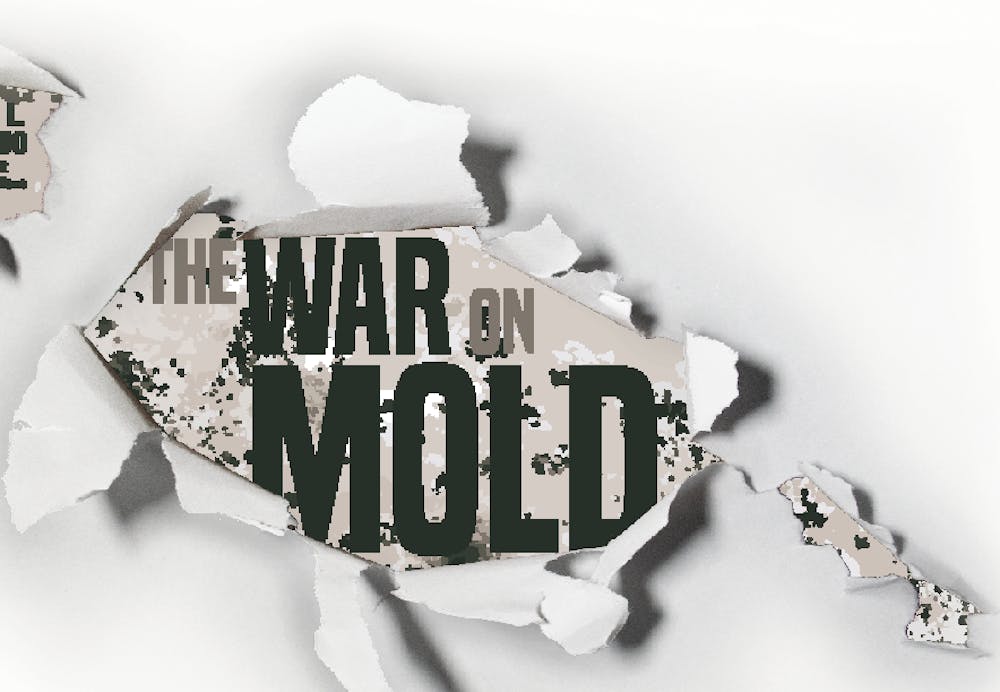EDITOR'S NOTE (5:26 p.m., Thursday, Dec. 15): The original version of this story lacked necessary information documenting students' reports of mold in residence halls. The story has been updated to reflect the university's response to the reports made through Elon's FixIt portal. Student reports where ENN could not independently verify the existence of mold have been removed.
To address “several inquires about mold and mildew in the Historic neighborhood,” MarQuita Barker, senior associate director of Residence Life, sent an email to all Historic residents on Nov. 4. This email was sent to assure students that “no mold has been found,” and that the threat of mold and mildew was not a prevalent one in Historic.
Twenty-one work orders were sent from Historic residents to the Physical Plant Department from Oct. 29 to Nov. 29.
Seven of the work orders came from rooms that had “minor areas of mildew on windows or AC units,” according to Jon Dooley, assistant vice president for Student Life and dean of Campus Life. Another three work orders led to the discovery of mildew “due to thermostats set too low or showers not cleaned by residents.” The investigations of another five work orders ended in the discovery of “no presence of mold/mildew.”
After the initial inspections that were prompted by the work orders, Elon University hired an independent contractor outside of the university to perform air quality tests. These contractors performed six air quality tests, four of which were conducted in residence halls where work orders were being sent from. They measured the concentration of mold spores both inside and outside the four residence halls.
For this test, if the levels that were found inside the residence halls were more than 50 percent the mold spore concentration outside of the residence hall, then there would be a considerable mold threat.
According to Dooley, though, all six air quality tests turned out negative for a dangerous number of mold spores in the residence halls.
If the mold spore concentration per cubic meter outside the residence halls reached 10,000 or above, it would be immediately considered a threat, but according to Dooley there were no tests that had results close to that benchmark.
After the completion of these tests, Dooley stated on behalf of Elon University and Residence Life that “we have an unwavering commitment to the health and safety of students.”
To assure that mold and mildew does not become a problem in dormitories around Elon, students with bathroom exhausts should turn those on while showering and students without bathroom exhausts should keep the bathrooms doors ajar and open windows immediately after showering. After drying off from showers, residents should leave their towels and floor mat out to dry properly. With winter coming up, students should also make sure not to set room thermostats above 68 degrees.
If mold or mildew is already present, call Physical Plant at (336)-278-5555 or send in a work order on the Elon FixIt website at: https://www.elon.edu/iservice/
Despite not finding any dangerous levels of mold spores, the number of ill students is still a major concern for the university. Dr. Ginette Archinal, medical director of Student Health and University Physician, attributed student’s symptoms to several uncontrollable circumstances.
According to Archinal, it is common for students to have allergic reactions to the pollen, trees or natural mold in Elon and in North Carolina. The exposure to more people is also a common reason for new students to become ill.
Lastly, Archinal believes that students “immune systems are run down due to lack of sleep, stress or poor diet,” which leaves students susceptible to an array of illnesses.
Archinal also stated that, “the first semester of the first year is when the most people get sick,” but “the same students often do not have the same illnesses in the second semester of their first year.”


